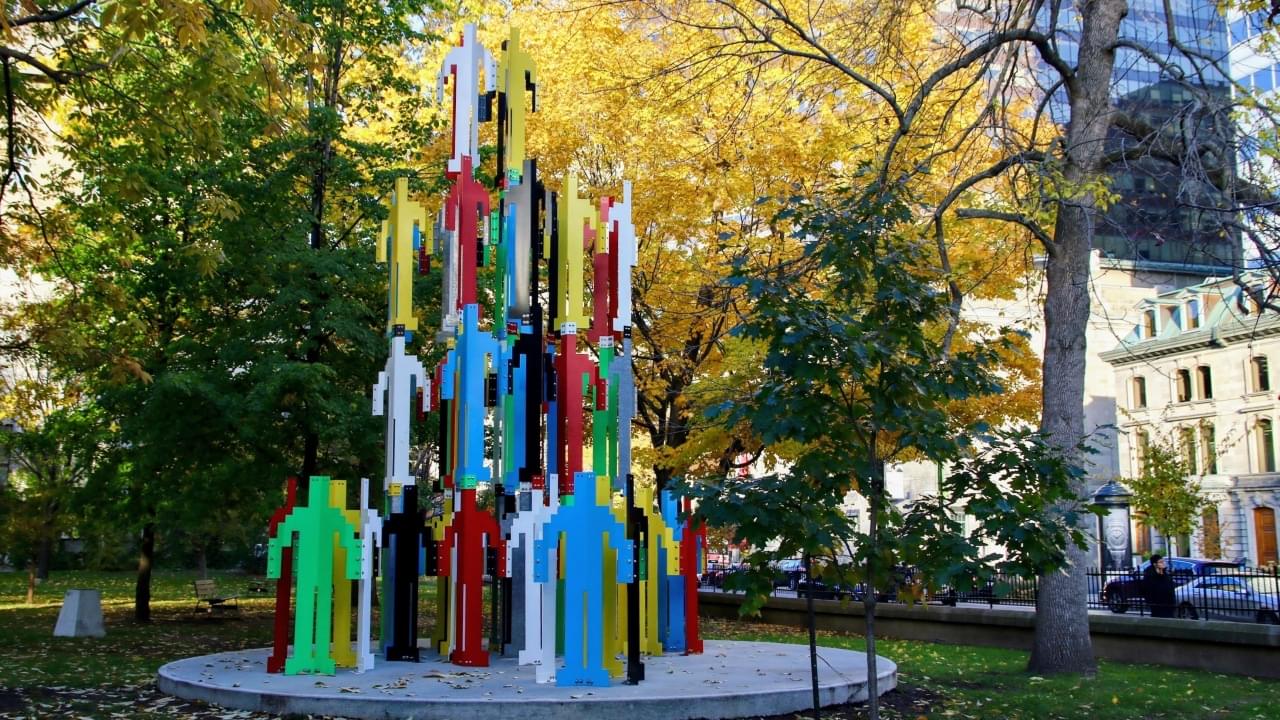
Everyone needs a little extra support sometimes, and it's okay to ask for help. Here are just a few of the many types of resources available to you.
Students Helping Students
- Peer Support Centre
Stressed? Lonely? Feeling down? Or just want to chat? The Peer Support Centre (PSC) offers confidential, one-on-one peer support in person and virtually, by appointment or drop-in. - McGill Students’ Nightline
A confidential, anonymous and non-judgmental (English-only) listening service, run by McGill students via phone and chat. The McGill Nightline operates every evening from 6:00pm - 3:00am during Fall and Winter terms. - Peer Support
- Healthier McGill's Hub Peer Supporters are are available to listen and help without judgment, wherever you are on your well-being journey. They can be found greeting at the Hub Clinic, working in the Healthy Living Annex, and facilitating both in-person and online activities and events throughout the year.
- Many faculties and student unions run their own peer support groups on campus. Have a look at the full list of undergraduate peer support resources and graduate peer support resources on the Students Helping Students site.
University Advocacy
-
Office of the Dean of Students
Committed to supporting both your academic and personal success, including student rights and responsibilities, academic integrity, academic advising, mentoring, the student disciplinary process, crisis response, Aboriginal Affairs, and student recognition. -
Office of the Ombudsperson
Offers confidential, informal, independent, and impartial dispute resolution services to all members of the student community by providing information, advice, intervention, mediation, and referrals. They can also provide information on University rules, regulations, policies, and procedures. -
McGill Office for Mediation and Reporting
Can help you file a formal report of discrimination, harassment, or sexual violence; learn about policies and processes; or be connected to additional supports. -
Legal Information Clinic at McGill
A non-profit, student-run, bilingual, and free legal information service from students in the Faculty of Law. They also offer student advocacy, free advice and representation to students accused of a disciplinary offence (such as plagiarism or cheating) or students who feel unjustly treated by the University, as well as Commissioner of Oaths services.
Sexual Violence Resources
- Sexual Assault Centre of the McGill Students’ Society (SACOMSS)
A volunteer- and student-run organization committed to supporting survivors of sexual assault and their allies through direct support, advocacy, and outreach. SACOMSS is a pro-survivor, pro-feminist, anti-racist, anti-ableist, anti-classist, queer-positive, trans*-positive, and anti-oppressive organization. All SACOMSS Services are free, confidential, and non-judgmental. Their services range from drop-in and phone support to support groups, advocacy and accompaniment, to education and outreach. - Office for Sexual Violence Response, Support, and Education (O-SVRSE)
Working under the Dean of Students' office, the Office for Sexual Violence Response, Support, and Education provides confidential, non-judgmental and non-directional support and education to students, faculty and staff of all genders who have been impacted by sexual violence. The O-SVRSE is committed to working towards the prevention of sexual and gender-based violence while fostering a culture of consent at McGill. It also acts as McGill’s main point of entry and contact for anyone wishing to report an incident of sexual violence or to enter into a formal disciplinary process. They offer crisis intervention, short-term counselling, reporting information and accompaniment, and more.
Safety on Campus
- McGill Student Emergency Response Team (M-SERT)
A volunteer service supported by the SSMU whose members provide emergency first-aid services to McGill University and the Montreal community. M-SERT provides first aid coverage to the McGill University Residences, as well as Frosh, Intramural Hockey, and many on- and off-campus events. - Walksafe
A volunteer SSMU service that provides free and confidential accompaniment for those who are walking at night. No matter what the reason, our volunteers will get you from A to B, safely, anywhere on the island of Montreal. Safe-walks can be requested by phoning the WALKSAFE office at 514-398-2498. - Drivesafe
A volunteer SSMU service that operates vans which can drive students safely home for free, every Thursday, Friday and Saturday night from 11 PM – 3 AM during the Fall and Winter terms. Drivesafe’s standard operating range is the island of Montreal. They can be reached by calling 514-398-8040. - Security Services
Committed to providing a safe and secure environment for all through guidance, prevention, and response. In addition to security patrols across campus, they also provide adapted transport services, a safety escort service, self defense awareness training, manage blue emergency phones, and oversee campus lost and found.